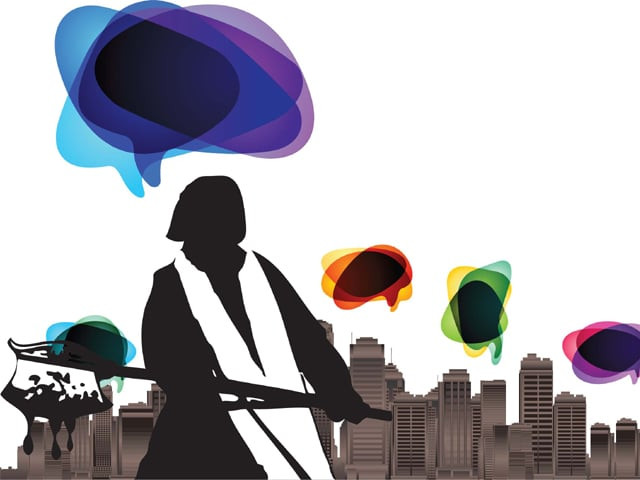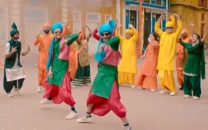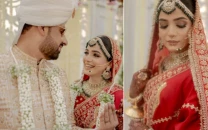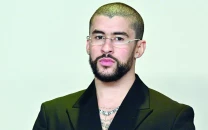Lollywood’s language connection
Iconic dialogues from Pakistani films have become a part of everyday conversations.

“Mollay nu molla na maray tay molla nai marda, Your Honour,” Aitzaz Ahsan replied.
This dialogue was written by celebrated film writer Nasir Adeeb for his magnum opus film Maula Jutt. The use of this dialogue by Ahsan in one of the most important cases in judicial history speaks volumes about its popularity.
Other dialogues that have become part of everyday-speak include those from films from the 1960s and 1970s such as “Maa, maine BA pass karliya” (Mother, I have passed the BA exam).
While people associate famous dialogues with the actors who uttered them on screen, credit is rarely given to the people who penned them. The Express Tribune talked to some of the famous script writers to share their favourite dialogues.
“Dozens of my dialogues are used by people in their routine life and I like when I listen someone using dialogue written by me in conversation. ‘Nawa aya ay sohnia’ (Are you the new one here) is one such example. It was a proud moment for me when Aitzaz Ahsan spoke my dialogue in the Supreme Court during the hearing of the petition seeking reinstatement of the chief justice,” Nasib Adeeb said.
“One of my dialogues, ‘Ay hawas ve ajeeb cheez ay. Kutta raj jaway tay chup kar janda ay. Insaan raj jaway ty bhonkana shuru kr denda ay’ is my favorite. (This lust is a strange thing. When a dog eats well it sits silently but when a man becomes prosperous he starts barking).”
Adeeb said that he is currently writing a book on his famous dialogues which would be launched soon.
Film writer Pervaiz Kaleem said his favourite dialogue was from his film Bazaar-e-Husn, “Tawaaif ke adaoon aur nakhre ka samadnar itna gehra hota key zahaant chahe to bhi usme se ter ke nahi guzar sakti (The sea of a courtesan’s alluring gestures is so deep that intelligence can’t swim through it despite willingness).”
Kaleem’s other favourite dialogue is from the film Leader, which was spoken by Nadeem, “Ma wo leader nahi jo apnay elect hone ki khushi us bazaar mai ja kar manatay hain. Wo khud to saari raat kisi tawarif ke saath daad-e ash detay hain aur ghungroon ke chaoon talay khari hui unke pajero pe laga hua Pakistani parcham saari raat apna sar jukha ke khoon ke aanso bahata hai (I am not one of those leaders who celebrate their happiness of being elected in the red light area. They spend the night with a courtesan while the Pakistani flag on their Pajero, which is standing beneath the shade of dancing bells, weeps tears of blood).”
Film writer Jamshed Naqvi said that a dialogue written by the late Anwar Kamal Pasha for the film Sarfarosh is his favourite. It reads, “Chori mera pesha hai namaz mera faraz (Theft is my profession, offering prayer is my duty).” He said the hero speaks this dialogue when someone watches him offering prayers despite being a thief.
Film writer Rukhsana Noor said that dialogues of Maula Jatt are her favorite. She said that another favourite is the dialogue from Syed Noor’s film Choorian that reads, “Maami, maami ban dain na ban (Aunty, act like an aunty not like a witch).”
Published in The Express Tribune, November 23rd, 2010.



















COMMENTS
Comments are moderated and generally will be posted if they are on-topic and not abusive.
For more information, please see our Comments FAQ